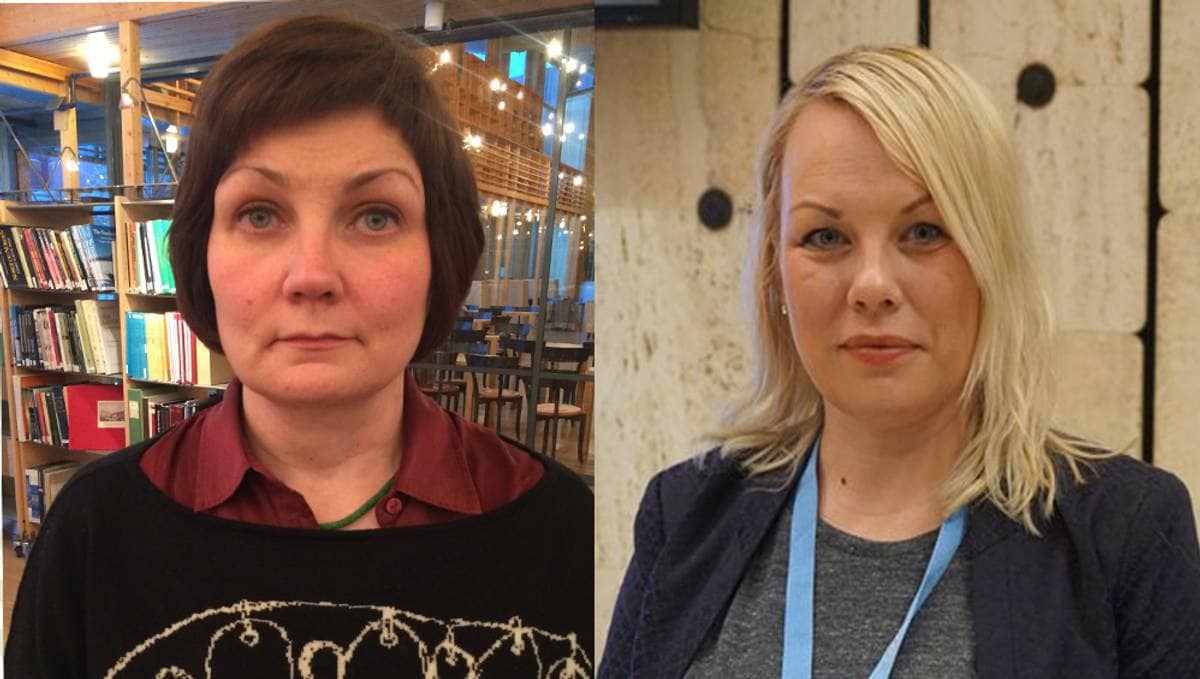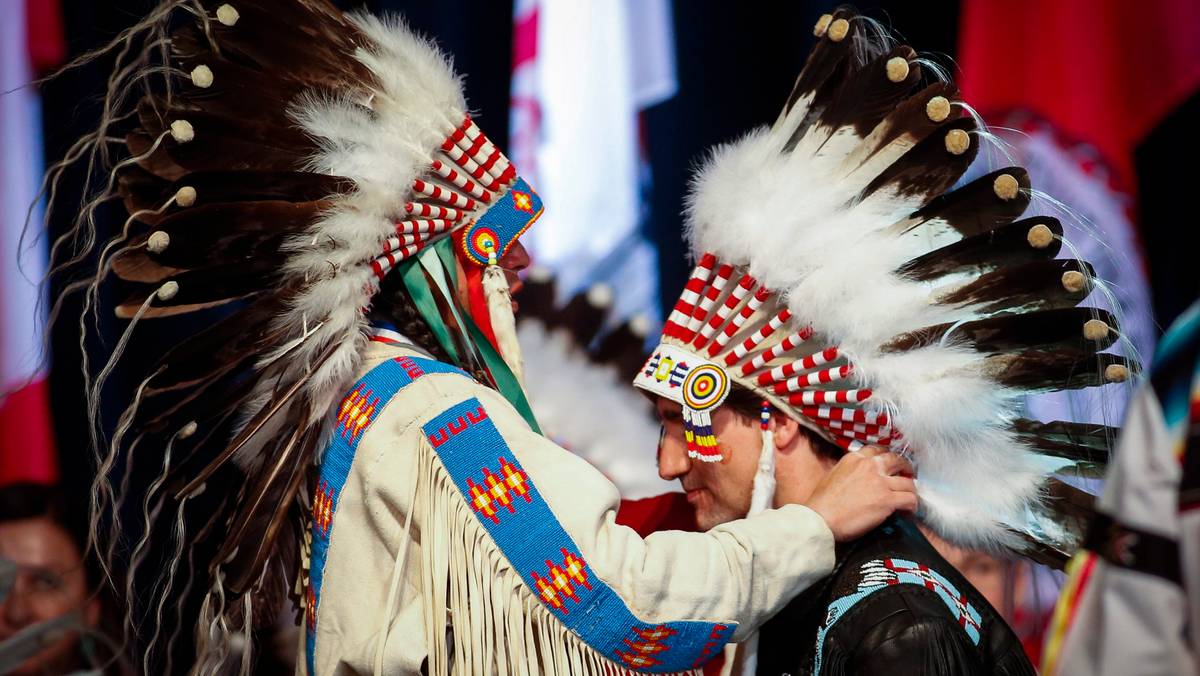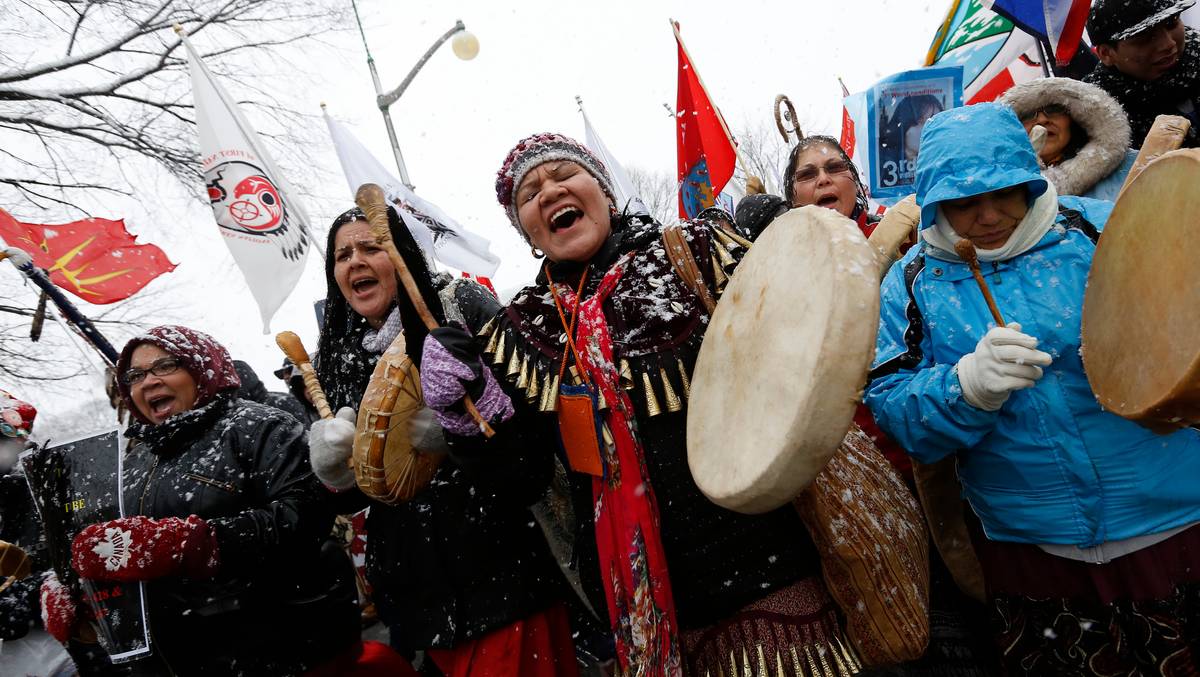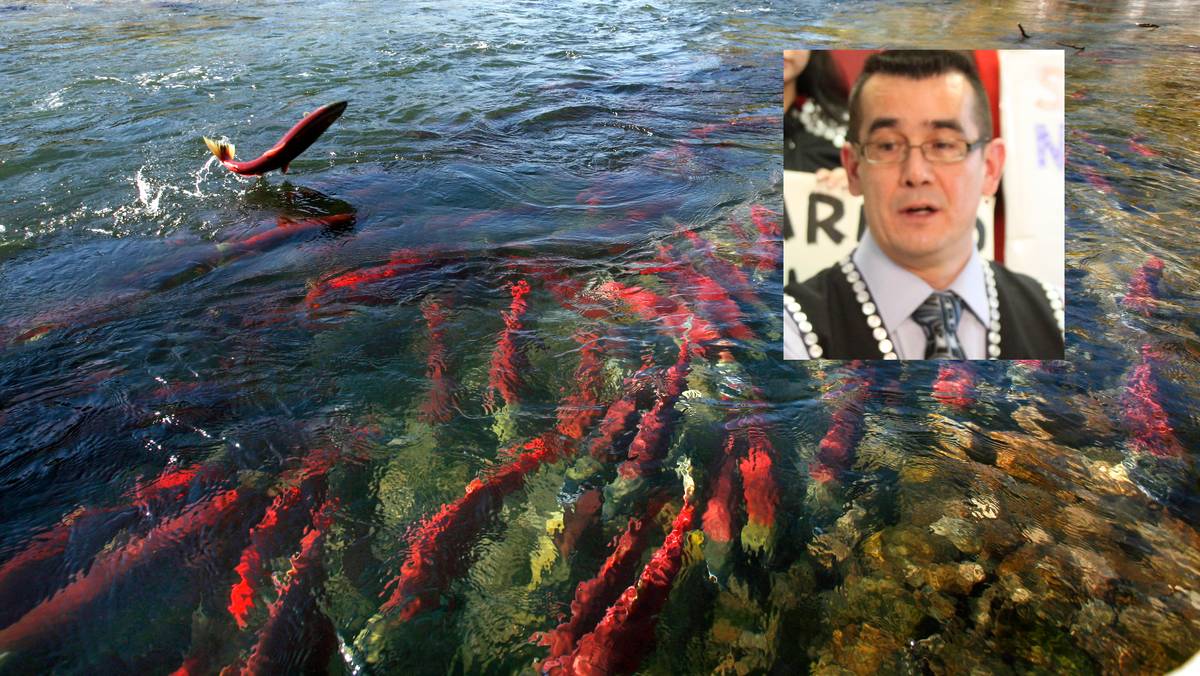Gáldu director Laila Susanne Vars believes that the Sami Parliament should have ethical discussions about the consequences of indigenous people having to resort to support from mining companies to access higher education.
Vars is also a representative of the Árja Party in the Sámi Parliament.
TRAKK SEG: Sami Parliament advisor Silje Karine Muotka and Runar advisor Myrnes Balto.
Photo: Photo montage. Photographers: Nils Henrik Måsø/NRK and John Arne Hovstad Balto/private.
– The current situation is that mining and mining companies participate more in the social debate, they are more often involved in financing different types of education, and this is not only happening in Canada, but also in other indigenous countries . regions of the world, she emphasizes.
It is in connection with the debate that
Leaders of the Sámi parliament are taking part in a master’s program backed by the controversial mining giant.
Criticism and debate surrounding master’s studies led to Silje Karine Muotka, advisor to the Sámi Parliament, and Runar Myrnes Balto, political advisor to the Sámi Parliament.
chose to withdraw from the study.
Keskitalo: – We are happy to have a debate on ethics
The president of the Sami Parliament, Aili Keskitalo (NSR), says she has absolutely nothing against such a debate.
– I am very open to the fact that we in the Sámi Parliament must periodically evaluate and discuss the ethical aspects of our work. Fortunately, it is true that the Sami Parliament has ethical guidelines at both the political and administrative levels. Guidelines for the political level are submitted for discussion at least once during each Sámi legislature. The objective is to renew regulations and raise politicians’ awareness of the ethical aspects of their activity, explains Keskitalo.
Although the situation in this aforementioned collaboration is that the mining company Cameco did not pay for the education of Sámi politicians and Norwegian students, the director of Gáldu – Laila Susanne Vars believes that there are ethical and moral aspects in this matter that the Sámi Parliament should debate.
– There should be transparency about how our Sami leaders represent the Sami and their interests. These are the ethical and moral aspects that the Sami Parliament should also discuss openly, believes Vars.
She also believes that more is expected of the Sami in an indigenous context.
– You have to ask yourself what kind of challenges and what kind of role this places us as Sámi, because the Sámi have a very special role in the context of indigenous peoples, because the Sámi have a special role internationally for show solidarity with others. indigenous peoples, she said.
Vars fears that, in the worst case scenario, an external perception may form that the Sámi do not consider the rights and struggles for the rights of other indigenous peoples as important, when we participate in programs to which international mining companies contribute. to finance part of it.
Warns the Sámi Parliament
Vars believes that the Sami Parliament should be careful about getting involved in cooperation programs in which international mining companies such as Cameco are also involved in one way or another.
– I would like to advise the Sámi Parliament to be extremely careful before entering into arenas that might create ambiguity about what the Sámi Parliament actually means.
– Education funding in Canada is completely different from that in the Nordic countries, where public agencies contribute to a large extent. So isn’t it good that indigenous people can access education with the help of mining companies?
– I think the Sami Parliament should instead focus on the fact that many indigenous people have poor economic conditions and that this also makes it difficult for many to pursue higher education,
The reactions of indigenous peoples speak for themselves
Indigenous peoples who are in one way or another affected by the activities of the uranium mining company Cameco have called on the Sámi to show solidarity in their fight against Cameco.
Vars believes that this is a signal that the Sámi Parliament should take seriously.
– I think that the reactions of the indigenous peoples affected by this affair show that in this affair our leaders crossed a line, that it was not wise to participate in this education program, especially when you are an elected official and ‘we are also supposed to represent the Sami Parliament
Finding financing in the Nordic countries
The Sámi Parliament should strive to help other indigenous peoples find other ways to finance education and thus strengthen higher education opportunities among indigenous peoples, believes Gáldu director Laila Susanne Vars.
– One possibility could be to work for Nordic countries to contribute financially to their home country’s scholarship programs and study tours in Scandinavia, so that they do not have to ask companies for money mining companies to get money to finance their higher education, says Vars
Here is Keskitalo’s response to Vars’ proposal:
– In principle, it is possible. I can inform you that what we are currently working on, among others, in the Sámi Parliamentary Council, is to create a global indigenous fund. The objective of such a fund is to enable indigenous representatives to follow international processes within the UN and other international bodies. We know this is a challenge and that many Indigenous groups do not have the same funding opportunities as we do. Of course, this also applies to education. I can’t promise something like this will happen now, but the idea is good, says Keskitalo.

“Explorer. Food advocate. Analyst. Freelance bacon practitioner. Future teen idol. Proud pop culture expert.”







